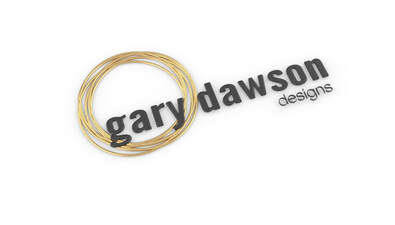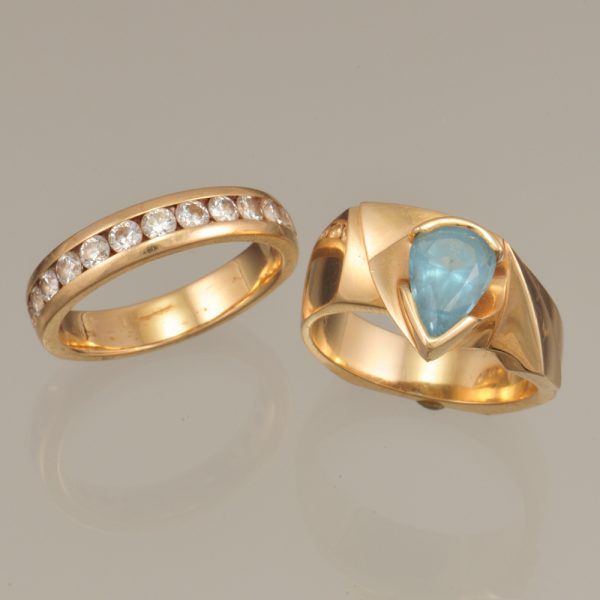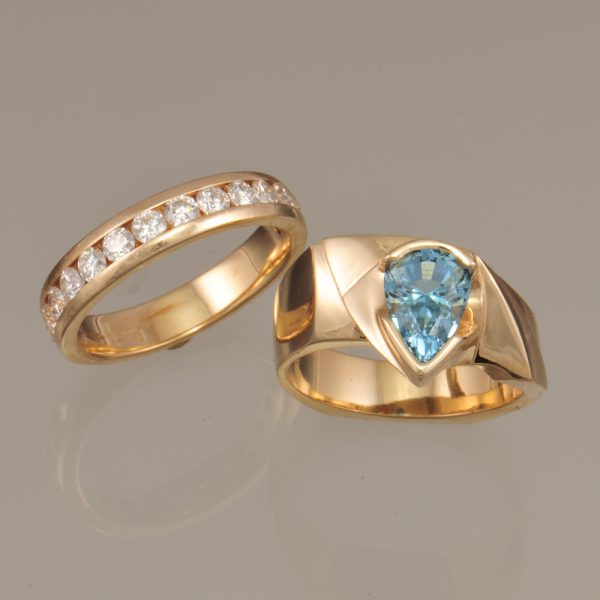|
Wear is Normal One thing that defines jewelry is that it is worn as personal adornment. On the body, or close to the body on clothing, it encounters nearly everything in your environment and like you, sometimes takes a beating. Both the metals and the gems in your jewelry are effected by wear. All jewelry contacts clothing and/or skin. Rings and bracelets contact, and are effected by, many more things. Also, the precious metals that make up most jewelry are malleable. So, jewelry that’s worn every day will go though some change over time. It is to be expected. Often, the wear on a loved piece of jewelry simply adds to its appeal…sometime not. This is the first part of a series designed to help you understand Jewelry Care and Maintenance. Jewelry Care and Maintenance: Metals The malleability of most jewelry alloys is a two-sided issue. Because the material is softer than some of the things it contacts, it will become scratched, or dull, or even gouged or dented. But its malleability also means that the surface will tend to become burnished or polished (to a degree) by other things it contacts. Over time, your precious metal jewelry will find its own natural state for the environment in which you wear it. As your environment changes, so will the surface of your precious metal jewelry. While Your jewelry can always be professionally re-polished, polishing removes material, taking the tops off the tiny hills and valleys created by normal wear. If you get obsessive about re-polishing your jewelry, you are reducing its useful life-span. My friend, Klaus Wiesner presented a great paper in 2008 about polishing and if you are interested in the science of the process, you will find it here. A trend in current aesthetics finds many new pieces of jewelry textured rather than polished. These pieces too will wear, and given enough time will find their own state-of-being within their environment. Jewelry Care: Cleaning Metals The metal itself in your jewelry may rarely, if ever, really require cleaning. The nooks and crannies in some designs may collect gunk though. It’s best to remove it before it dries, and hardens into a mass that can be more difficult to remove. My recommendation is to keep an old, soft-bristle toothbrush in your bath or shower and every few weeks or so, take your jewelry off and gently scrub it. If you get oil or paint or other stubborn dirt, solvents will not likely hurt your precious metals. Gemstones are another matter though and I’ll cover that in the next installment in this series. Dispelling a Myth
I’ve heard many times the suggestion to use tooth-paste to clean jewelry. This is not recommended because most all tooth paste contains an abrasive. If nothing else, the abrasive will deteriorate the finish of your polished jewelry. Next: About your gemstones, cleaning and maintenance tips…
0 Comments
|
Author
|




 RSS Feed
RSS Feed